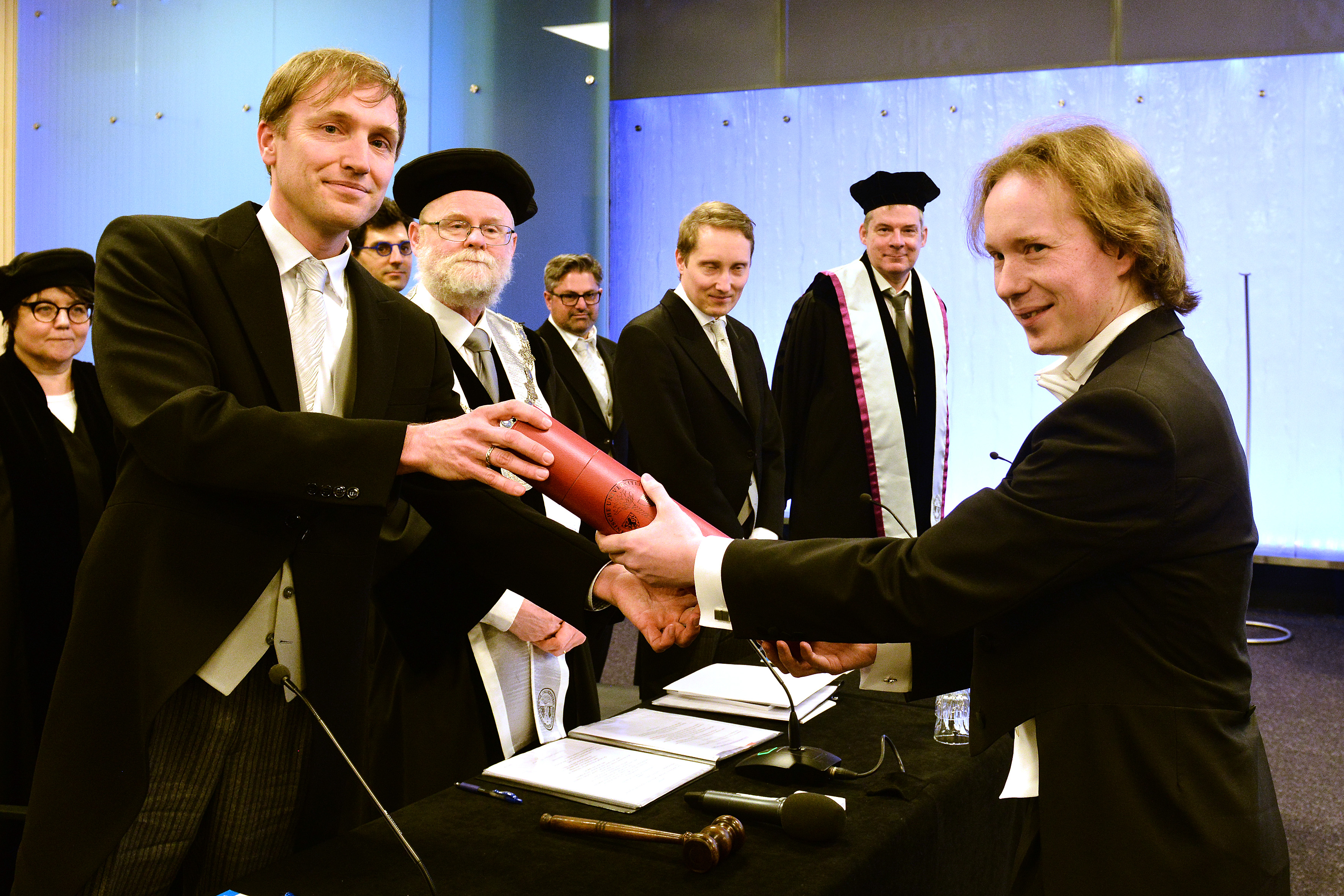Frits de Nijs is promoted to doctor on the design of algorithms for Resource-constrained Multi-agent Markov Decision Processes
This was the first time I acted as a promotor after having been co-promotor several times. I was very happy it happened to be Frits. Together with him we started the work on the use of artificial intelligence in smart grids.
His thesis on Resource-constrained Multi-agent Markov Decision Processes is very readable, but, as it happens with theses, also relatively long. As part of a book with contributions from the PowerWeb initiative (now an institute) we also wrote a chapter that summarizes most of his contributions, with a focus on the application of capacity management using demand response in an electricity grid.
Demand response refers to the concept that power consumption should aim to match supply, instead of supply following demand. It is a key technology to enable the successful transition to an electricity system that incorporates more and more intermittent and uncontrollable renewable energy sources. For instance, loads such as heat pumps or charging of electrical vehicles are potentially flexible and could be shifted in time to take advantage of renewable generation. Load shifting is most effective, however, when it is performed in a coordinated fashion to avoid merely shifting the peak instead of flattening it. In this chapter, we discuss multi- agent algorithms for capacity management to address this issue. Our methods focus in particular on addressing the challenges that result from the need to plan ahead into the future given uncertainty in supply and demand. We demonstrate that by decoupling the interactions of agents with the constraint, the resulting algorithms are able to compute effective demand response policies for hundreds of agents. (de Nijs et al., 2019. Multi-agent Planning Under Uncertainty for Capacity Management. In Intelligent Integrated Energy Systems, pp. 197–213. Springer. )
Together with Erwin Walraven, who graduate a month later, we are working on publishing the source code used for our research in a way that allows others to use them. Let me know if you want to be kept up-to-date.




Leave a Reply
You must be logged in to post a comment.